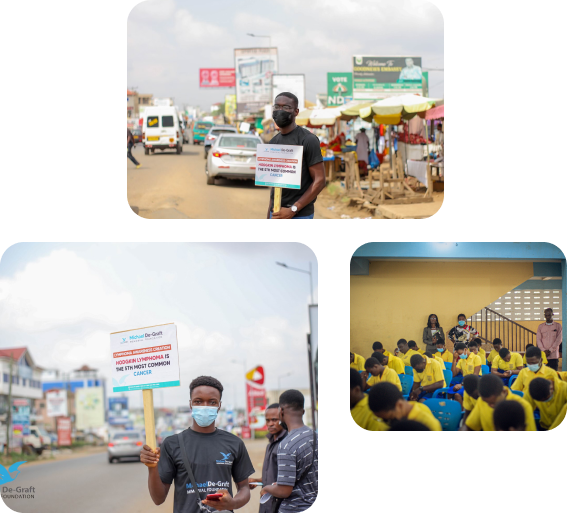
Night Sweats - Lymphoma can cause night sweats that drench your sleepwear and Bedsheets.
Itching all over the body - According to research, persistent itchiness (‘pruritus’) without a rash can be a symptom of lymphoma
Unexpected Weight Loss - Sudden and unintentional weight loss can be a sign of lymphoma. Rapid weight loss of more than 10% of original body weight during the 6 months before diagnosis.
Persistent cough - A persistent cough usually happens when HL affects the lymph nodes in the chest or the lungs. This might also cause you to have difficulty breathing. Coughing happens when swollen lymph nodes in the chest press on the trachea (windpipe). Itching all over the body - According to research, persistent itchiness (‘pruritus’) without a rash can be a symptom of lymphoma.
Unexpected Weight Loss - Sudden and unintentional weight loss can be a sign of lymphoma. Rapid weight loss of more than 10% of original body weight during the 6 months before diagnosis.
Persistent cough - A persistent cough usually happens when HL affects the lymph nodes in the chest or the lungs. This might also cause you to have difficulty breathing. Coughing happens when swollen lymph nodes in the chest press on the trachea (windpipe).
Low immunity
Virus Infections
Rubber industry workers being exposed to chemicals used in their operations
Chemotherapy: This is a type of cancer treatment that uses one or more anti-cancer drugs to keep cancer cells from growing, dividing, and making more cells. This use of drugs to destroy cancer cells is part of a standardized chemotherapy regimen.
Radiation Therapy: High doses of radiation are used in radiation therapy, also known as radiotherapy, as a cancer treatment to eradicate cancer cells and reduce tumor size. This treatment is generally provided as part of cancer treatment control. Most Hodgkin lymphoma patients receive radiation therapy as part of their treatment (HL). When HL just affects one area of the body, it is particularly helpful.
Stem cell transplanting: This is a procedure in which a patient receives healthy stem cells (blood-forming cells) to replace their stem cells that have been destroyed by treatment with radiation or high doses of chemotherapy.
